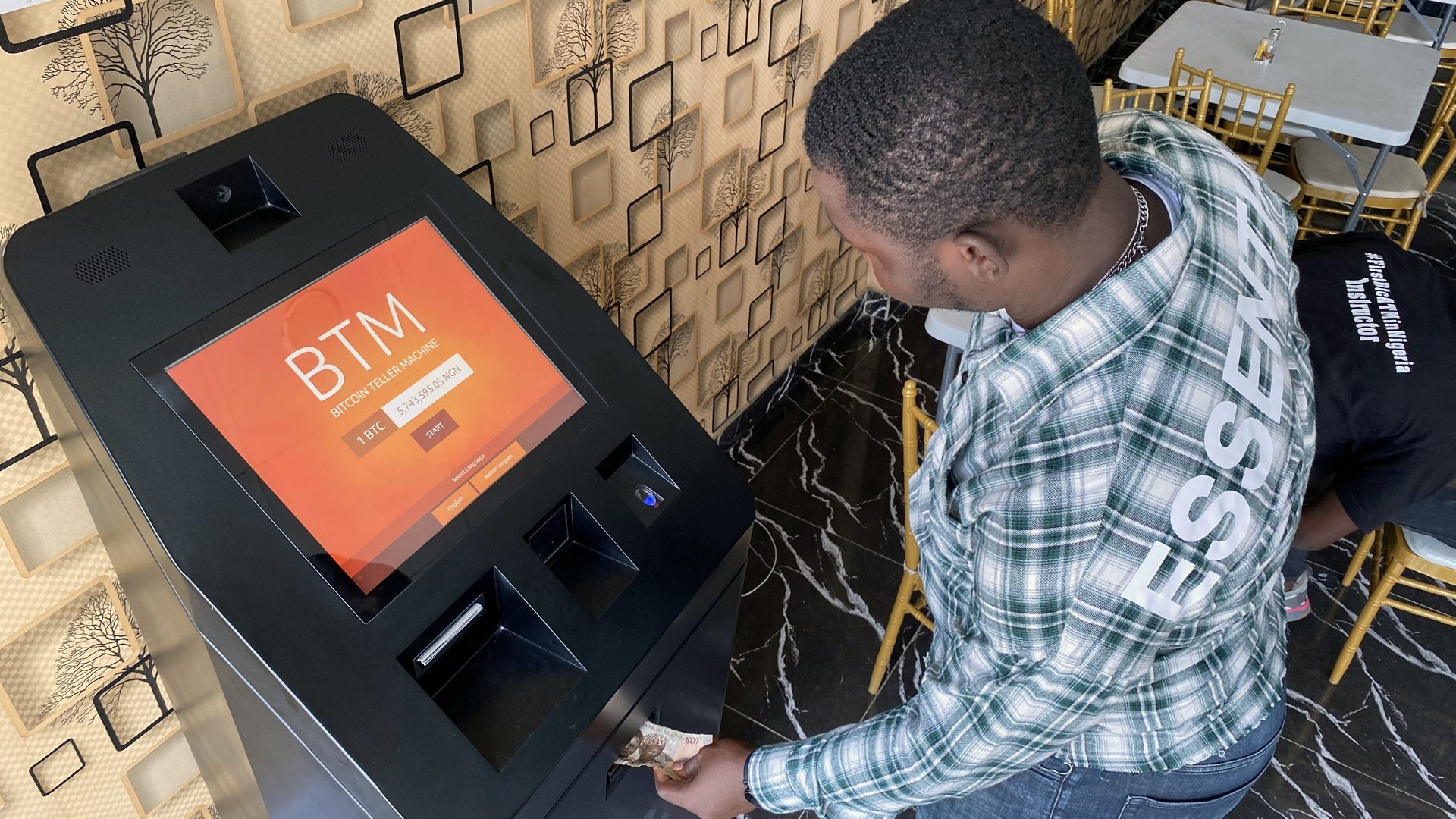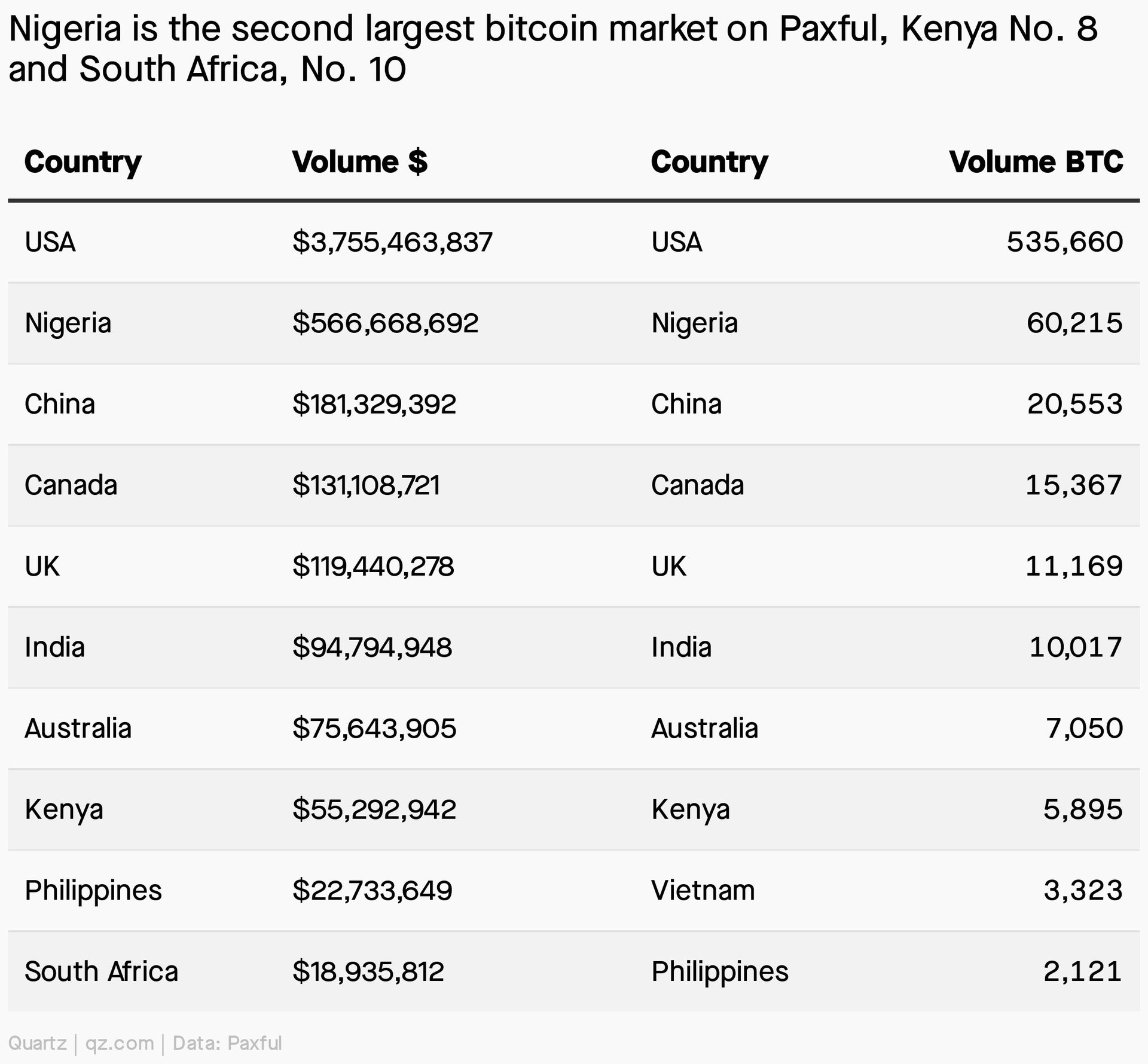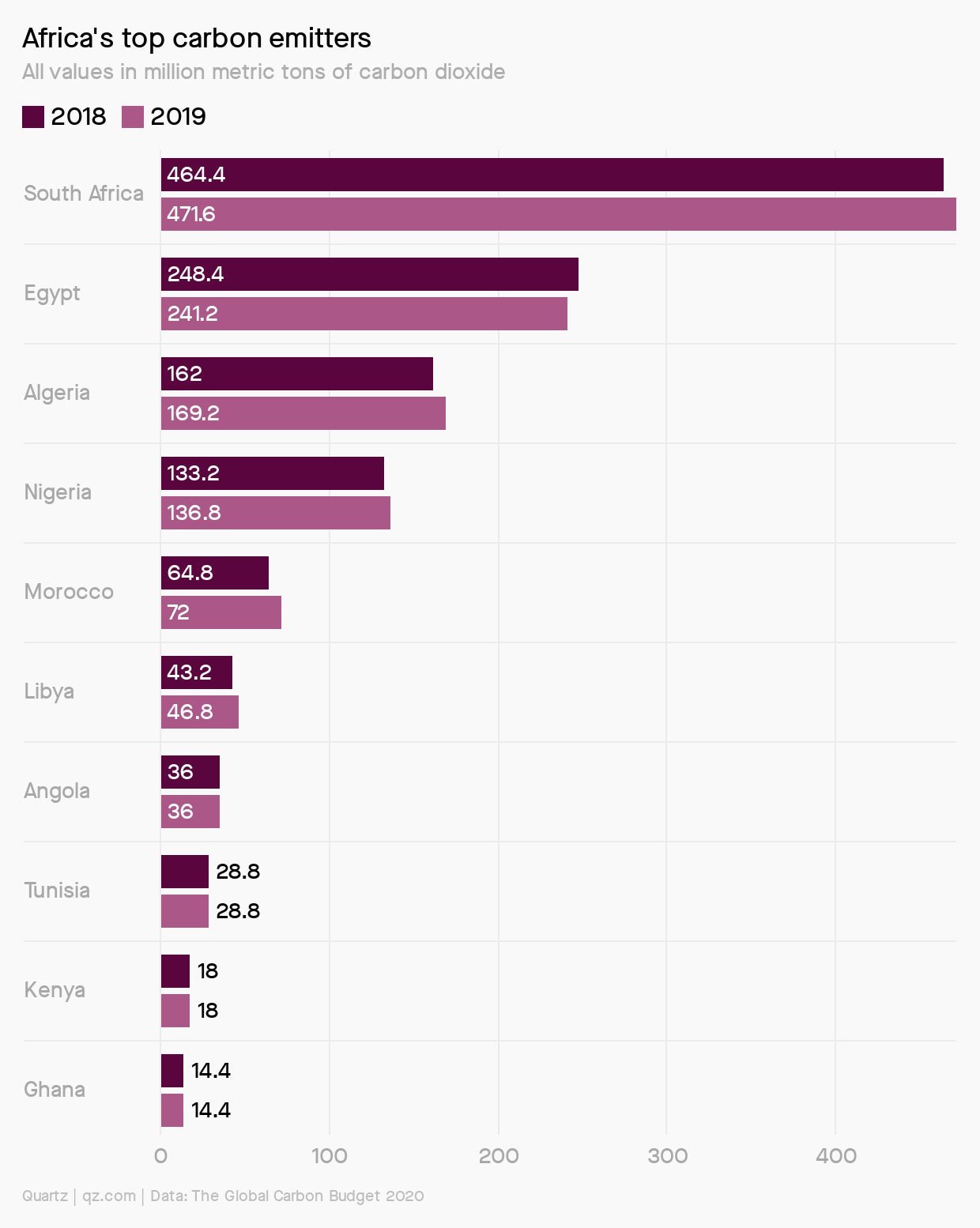Africa’s year ahead, Nigerians vs bitcoin, South Africa’s pollution
Hi, Quartz Africa readers!


Hi, Quartz Africa readers!
Year ahead
One of our most read stories every year is our annual economic lookahead for Africa, and this year was no different. What’s been curious is we can see from our records that the story is still being read well into December, even if in smaller reader numbers.
It’s curious because one might assume anything you expected or predicted for any economy got thrown out of the window sometime in early March at the latest. And yet, reading again it would seem the characters and underlying challenges remain the same even if the numbers are quite different.
For example, most of the African countries that were expected to be among the world’s fastest-growing economies are still mostly the same countries but with markedly slower growth, based on IMF estimates: South Sudan (4.1% previous forecast 8.2%); Benin (2% prev. 6.7%) Rwanda (1.99%, prev. 8.1%) Ethiopia ( 1.95% prev. 7.2%) and Côte d’Ivoire (1.8% prev. 7.3%).
Africa’s two largest economies, Nigeria and South Africa, were already in the doldrums ahead of the pandemic with expected flat to slow growth. Both will end the year with notably smaller economies. Nigeria will shrink by -4.3% and South Africa will do so by -8%. Their economic size weighs down the continent’s average to -3.4%.
As often discussed, the national lockdowns had a much bigger impact on African economies than the coronavirus did directly. But as we close out the year, there is undoubtedly a second wave in several countries, with South Africa seeing the worst impact. It is still likely African countries do better than the fearful forecasts at the start of the pandemic but the continent will not emerge unscathed.
One issue we covered at the start of the year, which quickly moved to the fore and then took over almost completely was sovereign debt. It will be difficult to look past debt management challenges in several key African countries over the next few months. There’s still a concern among analysts Zambia’s default last month could trigger other defaults in a continent where many governments had piled on debt with fewer options to pay back when the pandemic shut down their economies.
Almost all African economies will return to decent growth rates in 2021, some are even expected to pick up a pace from where they left off in 2019, maybe faster.
Here’s wishing all our readers the best for the year ahead.
— Yinka Adegoke, Quartz Africa editor
P.S: Last week was the last edition with our now former Lagos correspondent Yomi Kazeem. Yomi made an immense contribution in helping to put this newsletter together every week alongside his smart and timely reporting. We’re excited for his next move.
Stories this week
Nigerian genetics labs. Not one, but two Nigerian genetics laboratories opened this month from the non-profit and startup sectors. They will encourage the use of precision medicine with genetic information for disease diagnosis or treatment.
Africa’s free trade e-hub. On Jan. 1, the Africa Continental Free Trade Agreement will kick in and many will hope it emulates the best aspects of the EU. Jeffrey Mason examines the three most likely countries to become Africa’s e-hub.
African stereotypes in China. Migrants from Africa are often reduced to one-dimensional characters in China like elsewhere around the world. But Roberto Castillo finds Africans themselves are slowly changing the stereotype views.
Uganda’s YouTube shutdown ask. With an election in a few weeks, Ugandan authorities asked Google to get YouTube to shut several channels for running anti-government content, reports Stephen Kafeero.
Bitcoin’s rapid Nigerian rise. This year, Nigerians have had a torrid time with forex uncertainty and tough monetary regulations, so much so Nigeria is now one of the fastest-growing bitcoin trade markets in the world, learns Uwagbale Edward-Ekpu. It’s the second-largest on Paxful, a major peer-to-peer platform.

Chart of the week
South Africa’s pollution record. Last year, South Africa, whose coal-fired plants already make it Africa’s biggest polluter, saw another rise in carbon emissions. It wasn’t the only African country that saw a rise, but there was some good news for 2020.

Dealmaker
•Ilara Health, a Nairobi-based health tech startup, has raised $3.75 million in Series A funding round led by TLcom Capital. Other investors including DOB Equity, Global Ventures, and Chandaria Capital.
•Aerobotics, the South African agri-tech company, has raised $16.5 million in its latest funding roundAfr led by Naspers Foundry, alongside FMO Ventures and Cathay AfricInvest Innovation Fund.
QUARTZ ANNOUNCEMENT
Support the things you like. Quartz, yourself, and a friend. When you become a Quartz member today you can support all three. Your subscription to a year of Quartz comes with a free, 3-month gift pass for your friend. Subscribe now.

Other things we liked
Our distance from dirt. For Africa is a Country, Takondwa Semphere explores the widening disconnect between modern consumers and the land where their food and minerals originates. “Capitalism exacerbates this distance. It changes our connection to it from a relationship to a proprietorship.”
Africa’s Chinese railways slow down. There has been growing speculation China is cutting back on its Belt and Road spending. Nowhere is that more clear than the slowing roll-out of Chinese-built railways in Africa, note Jevans Nyabiage and Keegan Elmer for South China Morning Post.
Sicily inspires African ballads. Sicily in southern Italy is going through something of a cultural change influenced by its growing African migrant population. For the BBC, Ismail Einashe visited Palermo to see how the music, food, and culture are coming together.
ICYMI
Commonwealth Master’s scholarships. The UK’s Dept for International Development (DfID) is funding candidates from eligible low and middle income Commonwealth countries for full-time Master’s study at a UK university. (Jan. 18)
World Bank summer 2021 internships. The World Bank’s internship program is accepting applications for its May-September 2021 term. Candidates must have an undergraduate degree and be enrolled in full-time graduate study. (Jan. 31)
Keep an eye on
Central African Republic elections. Citizens of Central African Republic will go to the polls Dec. 27 to vote for a president and parliament. In the run-up to the elections this week Facebook revealed French and Russian operatives have been targeting CAR citizens online with misinformation.
Niger goes to the polls. On Dec. 27 citizens of Niger will go to the polls to vote for a president and parliament. Niger citizens were also targeted on Facebook, according to the social media giant’s probe.
*This brief was produced while listening to Feqer Endè Krar (Yebèqagnal) by Girma Bèyènè and Akalé Wubé (Ethiopia)
Our best wishes for a productive and ideas-filled week ahead. Please send any news, comments, suggestions, and ideas to [email protected]. You can follow us on Twitter at @qzafrica for updates throughout the day.
If you received this email from a friend or colleague, you can sign up here to receive the Quartz Africa Weekly Brief in your inbox every week. You can also follow Quartz Africa on Facebook.